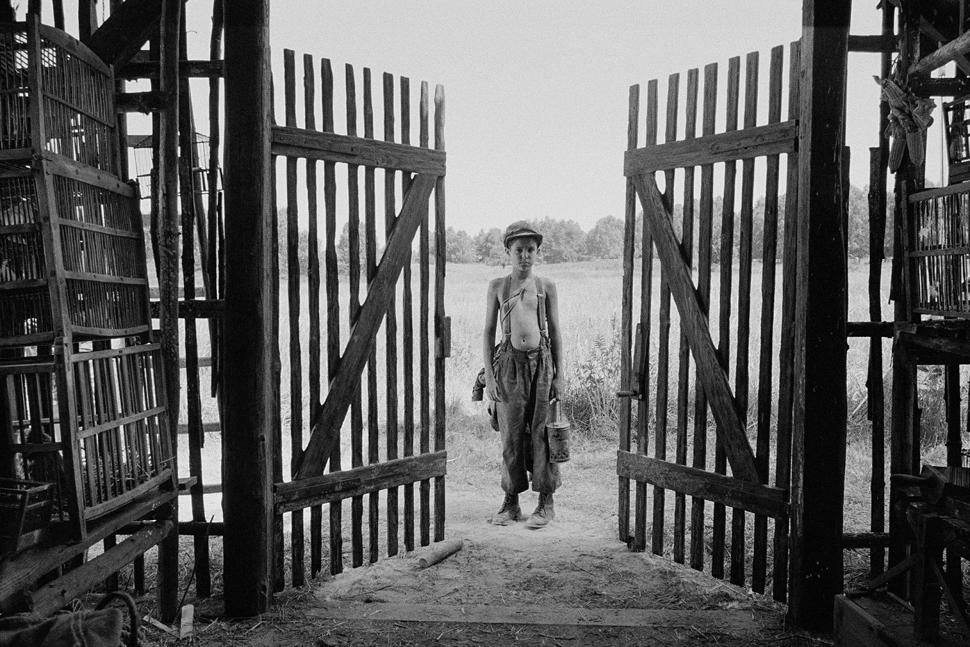
- Golden Globe Awards
The Painted Bird (Czech Republic)
Based on the acclaimed novel by Jerzy Kosinski, The Painted Bird took producer/writer/director Vaclev Marhoul over a decade to make. Shot in 35mm black and white, the film takes us on a journey through wild Eastern Europe and its bloody reality towards the end of World War II. It follows The Boy (played, when young, by Antonin Masek), left by his persecuted parents in the care of an elderly foster mother, who soon dies leaving the boy alone to wander on his own in the countryside from village to village, struggling to survive in the midst of unspeakable brutality by the hands of ignorant, superstitious peasants and the horrifying violence of ruthless soldiers, both Russian and German. The Painted Bird is the ultimate international collaboration of talents, starring German actor Udo Kier, British Julian Sands, Canadian Barry Pepper, Czech Petr Kotlar, Swedish Stellan Skarsgård and Harvey Keitel.The Painted Bird, 169 minutes long, had its world premiere at the 2019 Venice International Film Festival, and went on to screen at the 2019 Toronto International Film Festival in the Special Presentations section. The title comes from a story in Kosinky’s book. A bird-catcher catches a bird then paints it in multiple colors. Upon returning to flight, he’s an outcast to the other birds.Director Marhoul says he imagined how Luis Buñuel or Federico Fellini could adapt The Painted Bird, adding about Kosinski: “His soul was definitely, absolutely lost, just as The Boy’s is in the film … The main concept of The Painted Bird is that only people who spent their lives in war are able to enjoy life in peace. In the end, the light – which represents hope – is visible only in the dark.” The director acknowledges the controversial violent scenes in the film, from rape to disfiguration, which caused walkouts at both Venice and Toronto Film Festivals: “There are lots of harsh and cruel scenes in my film.” says Marhoul: In fact, I ask: how can we fight the brutality around us? How can we represent it?”“We are partly what we read and what films we have seen,” continues Marhoul. “I have been inspired by the films of Italian film director Vittorio De Sica because they are truthful. Then, also, Federico Fellini’s La Strada. I use all these inspirations without speculating on them. Brutal realism is simply part of the story. This story is set during the Second World War and the consequence of any war is brutality and violence, with people killing each other. This is not a war movie or a film about the Holocaust. Some people are just trying to simplify my movies by saying that they are Holocaust dramas. This is a story about a boy and not about the war, the soldiers, or the holocaust.”

